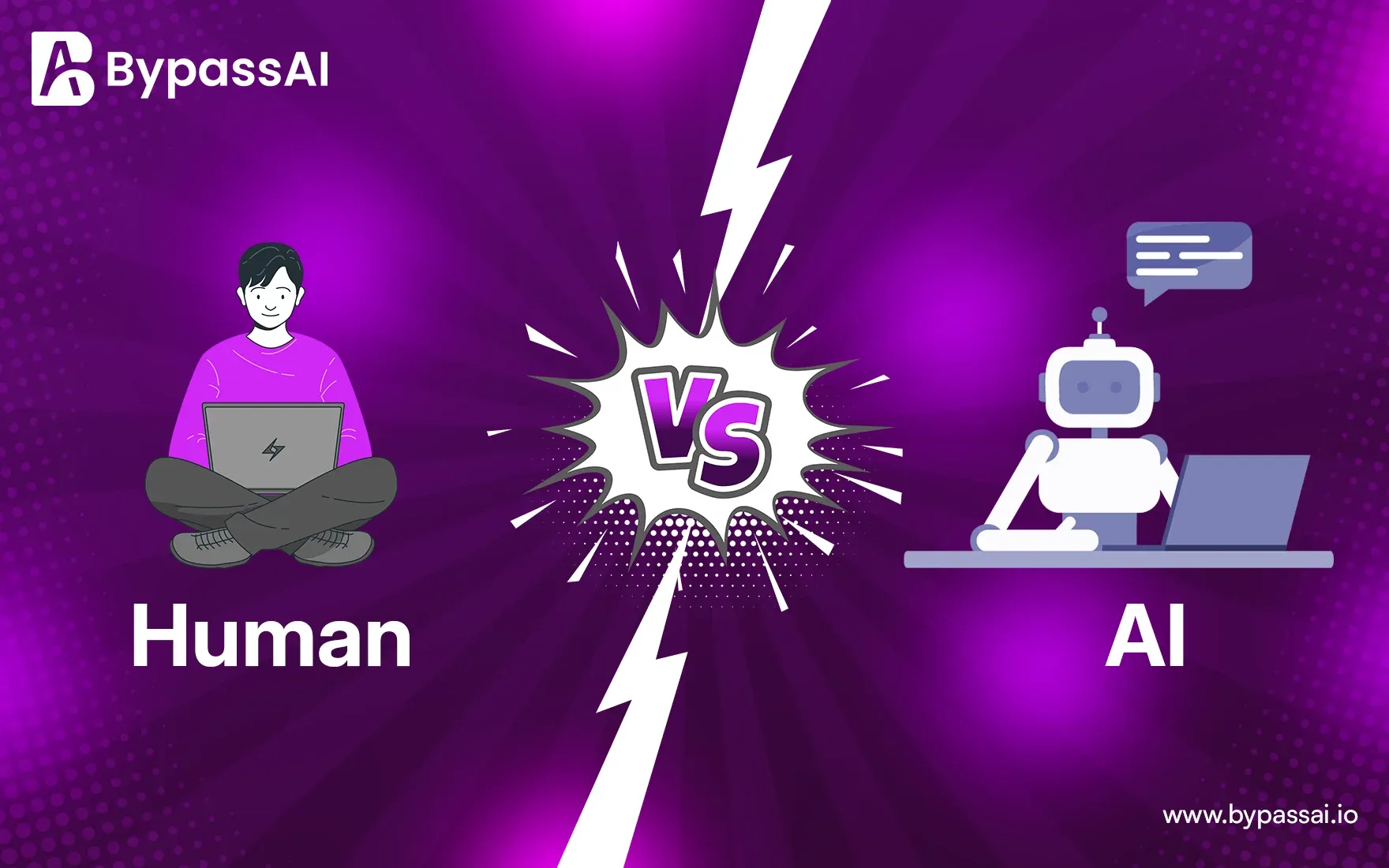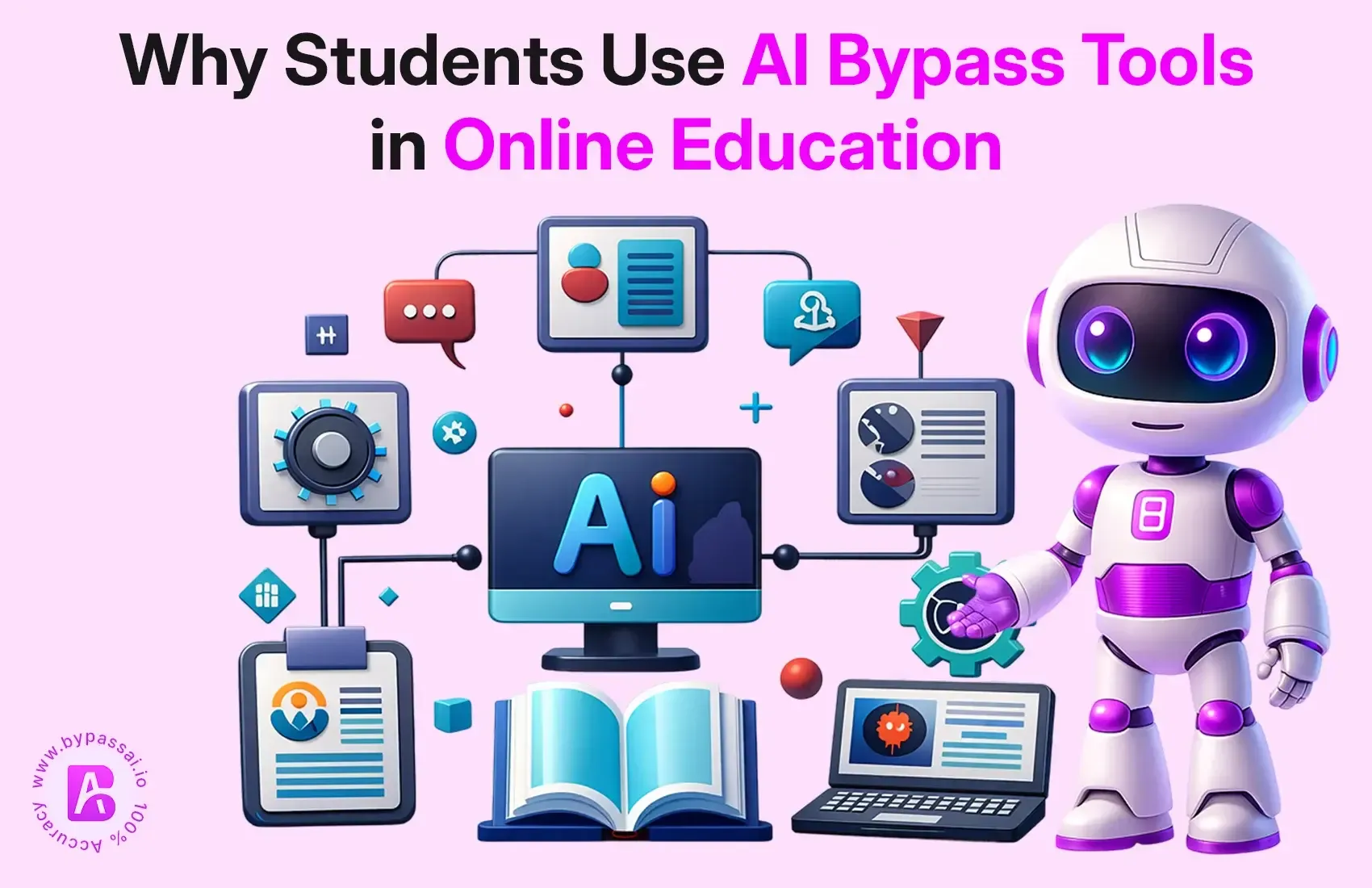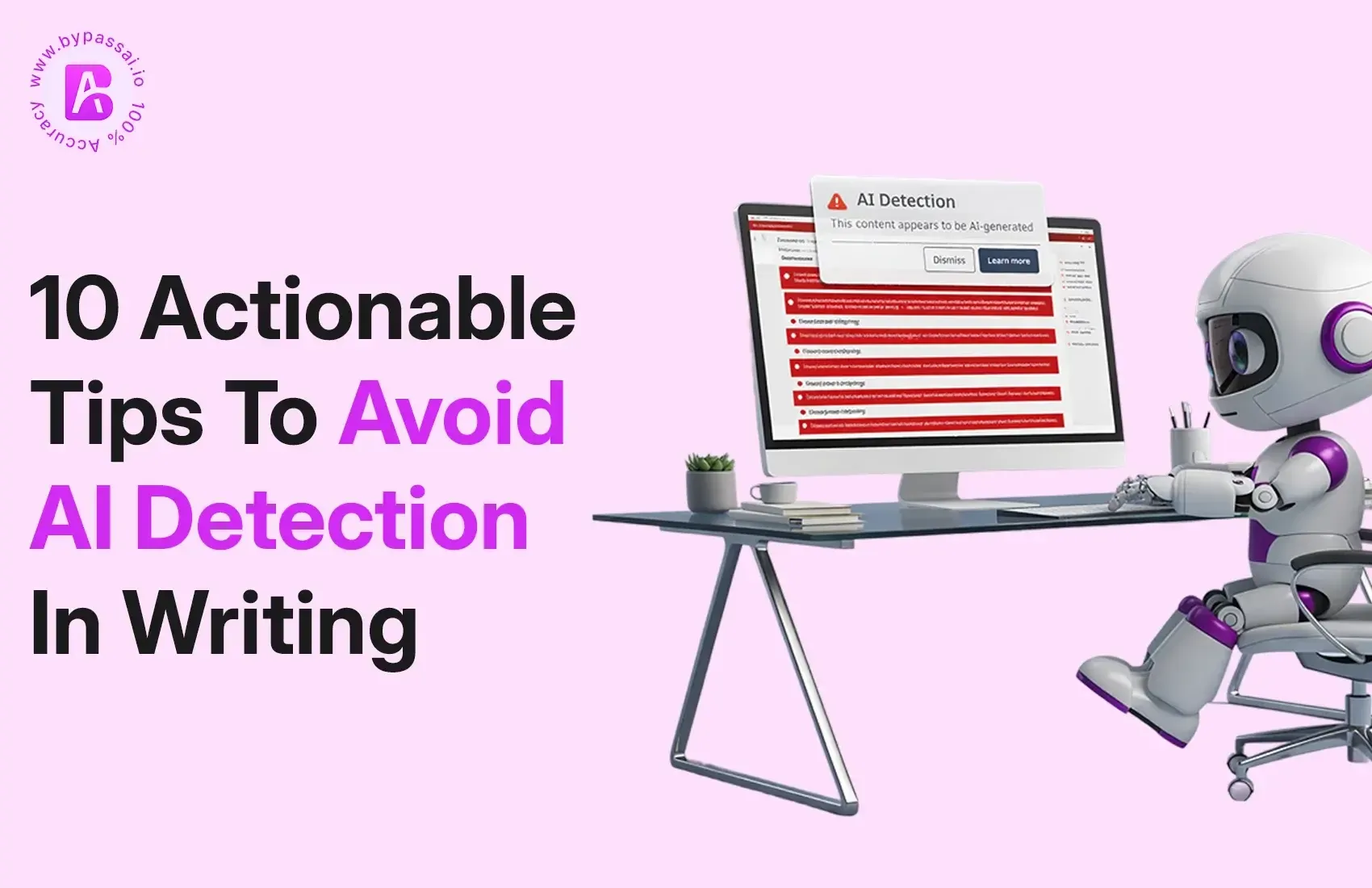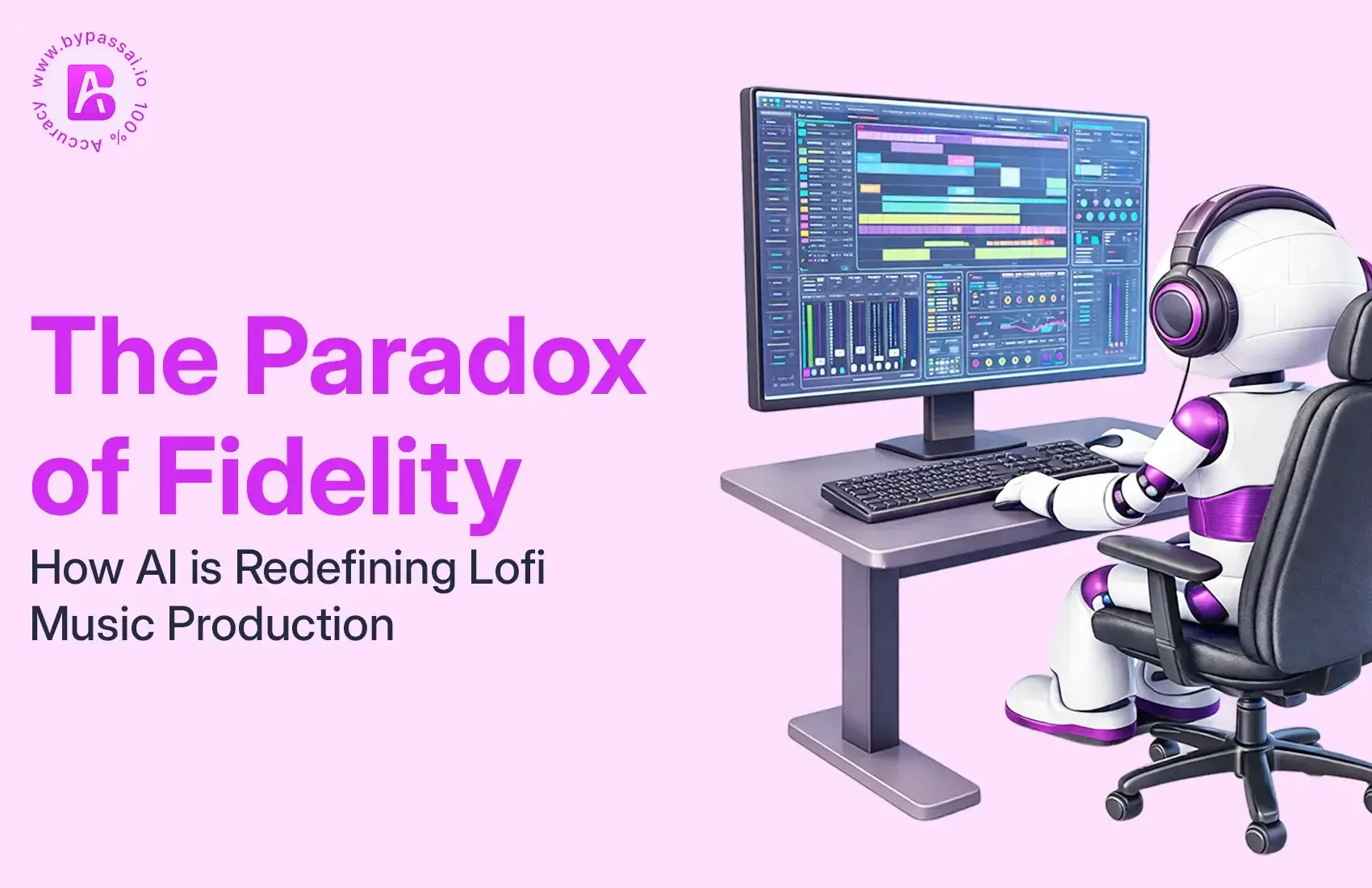Sign In
Welcome to Bypass AI! Sign in to continue your exploration of our platform with all its exciting features.
Forgot Password?
Don’t have an account ? Sign up
Sign Up
Embrace the Future with Bypass AI! Sign up now and let's rewrite the possibilities together.
You have an account ? Sign In
Enter OTP
We’ll send you an OTP on your registered email address
Back to Login
Forgot Password
We'll Send You An Email To Reset Your Password.
Back to Login
Enter OTP
We'll send you an email to reset your password.
Back to Login
Confirm Password
Please enter your new password.
TABLE OF CONTENTS
Quick Summary
What is AI Content?
What is Human Written Content?
What does Google say about AI text?
Can AI-generated content rank well?
Detailed Analysis of AI vs. Human Content
The Value of Human-Generated Content
How Bypassai IO Can Help?
Comparative Analysis: AI Vs. Human Content
Will AI content replace human writers?
Conclusion
FAQ
As this blog is being written, I’ve got a tab with the heading ‘Gemini’ opened. The person to my right has a tab with ‘ChatGPT’ opened.
We’re content writers working on various projects, and we integrate AI into our work processes. But, do we think that it can replace us? The answer is a big no. What we can do is, that we can integrate it into our work. This helps us churn out content way faster while delivering consistently. While we don’t guarantee a fight like the Terminator movies wherein AI declares war on humans, there’s some talk about AI vs human generated content.
Let’s answer – is AI generated content good for SEO?
Quick Summary
In this blog, we’ll be pitting AI vs human content, comparing them against one another. Let’s begin by understanding what both of these are:
What is AI Content?
AI content refers to content that’s generated using Artificial Intelligence tools. For example, the response that is generated by ChatGPT when you give it a prompt is referred to as ‘AI-generated content.
AI content is something that’s relatively new. AI models like ChatGPT from OpenAI, Google’s Gemini and Microsoft’s Copilot have been making waves.
BypassAI helps AI content change to human content with our tool.
What is Human Written Content?
Human content is basically output that is generated by humans. In terms of content, human content is simply written by humans. Nowadays, human content can also be termed as original content.
Human content has existed for as long as we’ve existed, whether we’re talking about cave paintings or Egyptian pyramid hieroglyphics – we've been writing for quite some time now.
What does Google say about AI text?
According to Google’s Search Guidelines, appropriate use of AI or automation is not against their guidelines. So, even Google acknowledges the fact that you can use AI for your content needs.
Can AI-generated content rank well?
Well yes, AI content is still content. And again, Google’s Search Guidelines don’t really rule it out as different from normal content. Using AI doesn’t alter content itself, it is still content.
With BypassAI, you get a tool that helps convert content from AI generated to human generated content.
Detailed Analysis of AI vs. Human Content
We now have an idea of what AI content is and what human content is, so let's move on to a detailed analysis of the various differences between them.
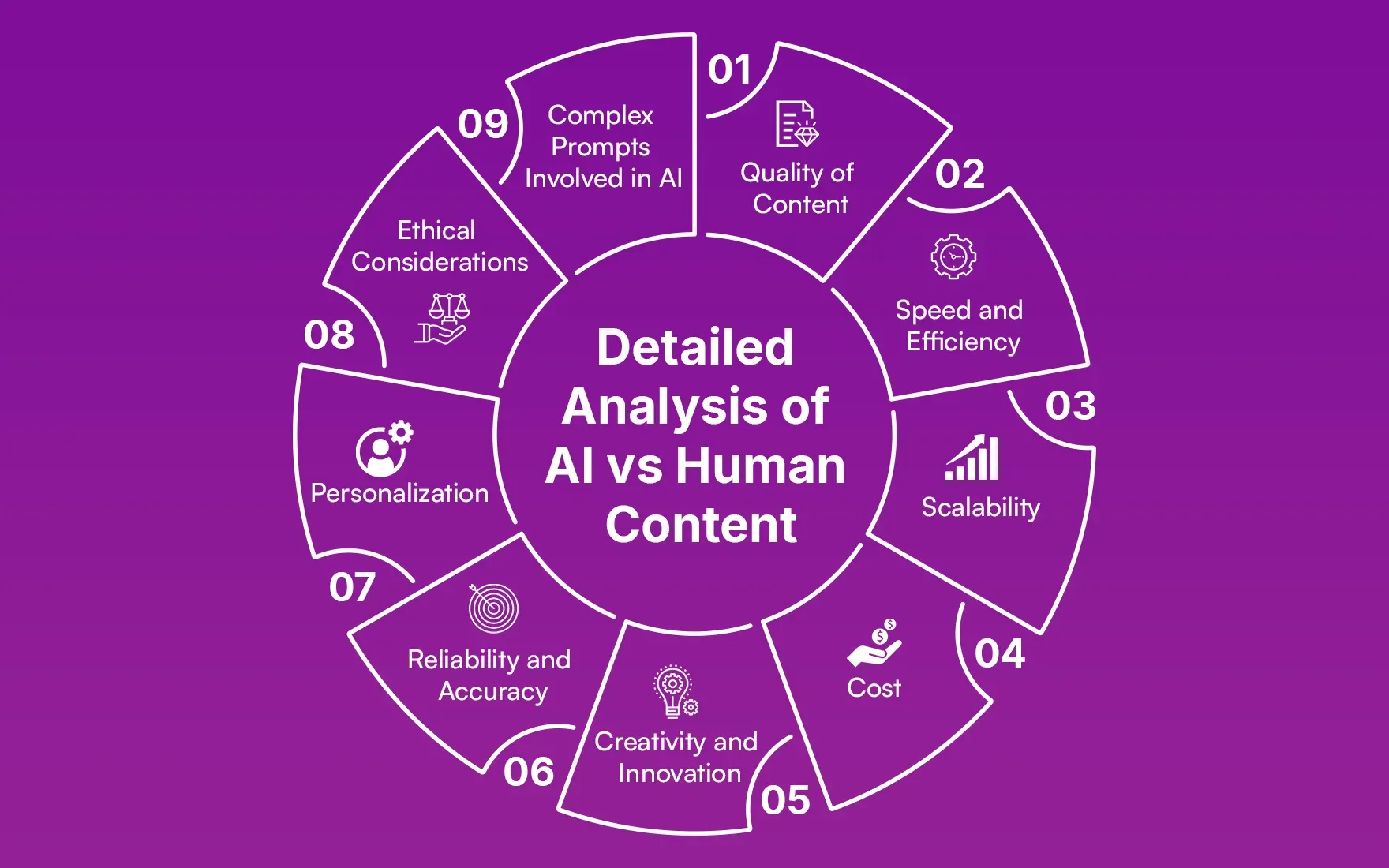
1. Quality of Content
AI Content: Churns out good content, but lacks the human touch
Example: An AI-generated product description for a running shoe might read – We offer shoes in a range of colours with rubber soles and mesh designs.
Human Content: Churns out content that connects with audiences
Example: Crafted for comfort and performance, our running shoes feature a breathable mesh upper and responsive cushioning for a dynamic stride.
2. Speed and Efficiency
I Content: AI content can be generated within seconds, but would sound quite general.
Example: A news outlet can use AI to generate a headline like "Earthquake strikes California" within minutes of the event.
Human Content: A journalist might take hours to write a detailed news article about the earthquake.
Example: An excerpt would include: ‘Havoc hits California, listen to what the people around the epicenter would like to say. Houses stand reduced to dust, and the hopes of people continue to break.’
3. Scalability
AI Content: Let’s scale up superfast, providing bulk content within seconds and minutes.
Example: An e-commerce platform that uses AI to generate product descriptions can generate 1000s of descriptions overnight.
Human Content: Labour-intensive, requiring human effort
Example: A team of writers would take up a lot of time and effort to create the same number of descriptions.
4. Cost
AI Content: Most AIs are free, and require only editing in order to connect with audiences
Example: ChatGPT, Gemini, and Copilot are AIs that are free, and have premium versions too that can help craft social media calendars in an instant.
Human Content: Human content is generated by humans, hence it requires a good amount of investment
Example: A good ton of money is spent on writers, marketers and graphic designers for even a single social media calendar
5. Creativity and Innovation
AI Content: AI-generated content tends to lack creativity, depth and innovation
Example: Fashion forward. Define your style. Dress to impress. These are taglines for brands in the fashion industry.
Human Content: Innovative, relating to humans in a unique manner
Example: Zara – Dress differently. Adidas – Impossible is nothing. Tommy Hilfiger – Classic American Cool.
Also read this article : 10 Best Undetectable AI Tools to Humanize AI Text
6. Reliability and Accuracy
AI Content: AI operates on data that exists, often failing to account for current affairs
Example: A weather forecast generated by AI might predict rain for the entire day.
Human Content: Specific content that is relevant to current affairs.
Example: A human meteorologist could specify rain showers in the afternoon with clearing skies later.
7. Personalization
AI Content: Uses patterns to determine user preferences and tastes
Example: A streaming service might recommend a similar movie to one you watched recently, but it might not align with your specific taste.
Human Content: Truly personalized experiences, right to the last minute detail
Example: A film critic can suggest movies based on your favorite genres, directors, and actors, providing a truly personalized recommendation.
8. Ethical Considerations
AI Content: An AI-generated article might use biased language or perpetuate stereotypes without realizing it.
Example: Taking bias of one community during a communal riot.
Human Content: A human can ensure their reporting is fair, unbiased, and respectful of all perspectives.
Example: Taking into account the broader perspective when reporting about a riot.
9. Complex Prompts Involved in AI
AI Content: You need to be a good prompter to shell out work from AI.
Example: To generate a high-quality article about quantum computing, an AI might require massive data and complex algorithms.
Human Content: You simply need to brief a human to clear out what type of content you need.
Example: A physicist with expertise in quantum computing can write an informative and engaging article with minimal research.
The Value of Human-Generated Content
Human-generated content is authentic and original. Though yes, content does tend to get plagiarized but human content is different from AI. It has that touch, that feeling that resonates with the audience. It hits all the right cords, and is written taking into account what humans can actually perceive and feel.
AI doesn’t feel any emotions – that's why it can’t really understand the depth of them. And content is something that has a secret ingredient – emotion.
Without emotions, content is generic, bland and lifeless. AI may try its best to mimic human emotions, but that’s all it can do. It cannot recreate them with the same feeling as us humans do.
How Bypassai IO Can Help?
With BypassAI.IO, you can trump AI detectors. Not only that, but you can humanize content. You’ll be able to convert AI to human writing.
What this does is take away that nasty AI feel from the content. It aims to introduce the human touch, something that is tough to mimic. Yet, our tool helps you add a human feel and helps content actually connect with audiences.
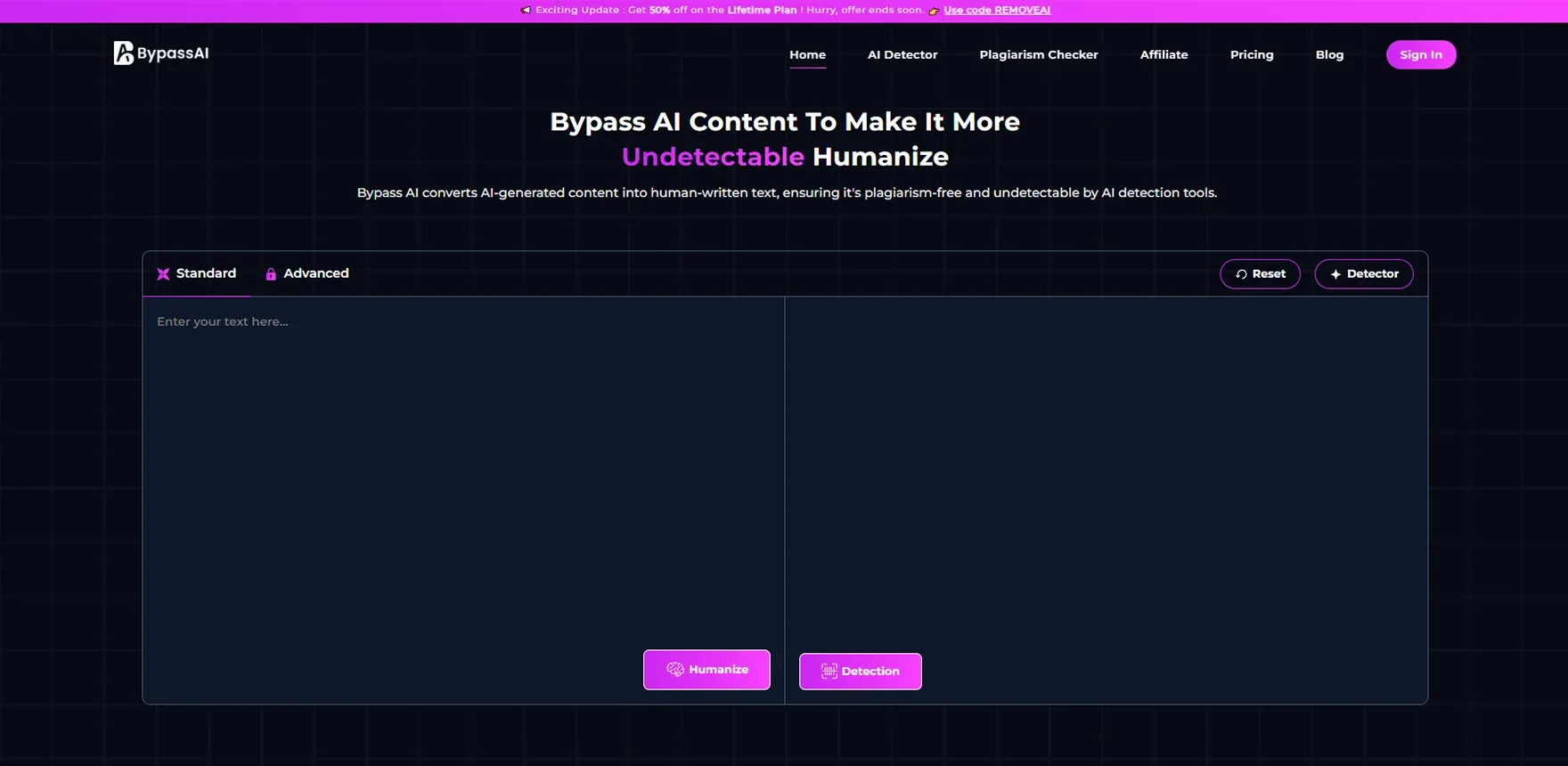
Comparative Analysis: AI Vs. Human Content
| No | Aspect | AI Content | Human Content |
|---|---|---|---|
| 1 | Quality of Content | Lacks human touch | Content that connects |
| 2 | Speed and Efficiency | Generated within seconds, but generic | Is original, but take time and effort |
| 3 | Scalability | Scaling is fast, providing bulk content in minutes | Labour-intensive and time-intensive |
| 4 | Cost | Most AIs are free | Requires human resource investment |
| 5 | Creativity and Innovation | Lacks creativity, depth and innovation | Innovative, relating in a unique manner |
| 6 | Reliability and Accuracy | Failing to consider current affairs | Content that’s relevant wit current affairs |
| 7 | Personalization | Uses patterns to determine user preferences | Detailed, personalized experiences |
| 8 | Ethical Considerations | May be biased without realizing the gravity | Fair, unbiased and respectful |
| 9 | Complex AI Prompts | You need to be good prompter for shelling work out from AI | You simply need to brief a human |
Will AI content replace human writers?
AI will never fully replace writers, but it will replace writers that have failed to evolve. We mean writers who haven't integrated AI into their writing endeavours.
If you view AI as a threat, you'll eventually not use it. But view it as a tool, and AI will become your sidekick. Use a balanced approach, and look how fast you get work done.
Just don’t develop a dependency on it. There’s hearsay in the writing industry that it decreases creativity, and we agree to that as well. But that’s the case with anything – don’t overuse it.
Conclusion
We’ve gone through most of the factors that differentiate AI content from human content. Aiming to keep it as close as possible, we can conclude on the fact that AI cannot match the humanity (or human-feel) that human content excels at. That one-on-one personal connection is something that flawlessly puts human generated content leagues above AI content. We have a tool that humanizes AI generated content. Our tool helps you in achieving that human feel that AI generators usually fall behind on. Try it out now from our website!
FAQ
1. Will AI ever replace human content writers?
Unlikely. AI is a powerful tool that can assist writers, but it can't replicate the creativity, critical thinking, and emotional intelligence of human writers. The future of content creation will likely involve a collaboration between humans and AI.
2. How can I make my AI content more human-like?
Tools like BypassAI IO can help you remove the "robotic" feel from AI-generated content. Additionally, you can personalize AI content by adding your own insights, experiences, and emotions. Our AI will help make AI writing more human, giving you that connected feel.
3. Is AI content good for SEO?
The answer is yes and no. AI content can be indexed by search engines, but it may not rank as well as well-written human content that is informative, engaging, and optimized for relevant keywords.

